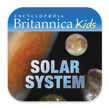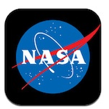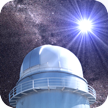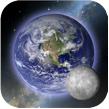Mobile Learning | Feature
4 Awesome Astronomy Apps
- By

- 04/15/14
Common Sense Media’s service Graphite, which offers independent ratings and reviews of learning apps and websites, has compiled this list of its top apps that help teach astronomy. For complete reviews, and for each app’s "Learning Rating," visit the Graphite website.
 Britannica Kids: Solar System
Britannica Kids: Solar System
Grades: 1-8
Price: $4.99
Concepts: Memorization, academic development, personal growth
Filled with games, videos, timed quizzes, and articles, Britannica Kids: Solar System is a great supplemental tool for learning about outer space. The app is designed to help kids improve observation and memory skills as they journey through an array of visuals and activities that cover many of the hot topics kids wants to know about our solar system. Read the full review.
 NASA App
NASA App
Grades: 2-12
Price: Free
Concepts: Investigation, thinking critically, part-whole relationships
NASA App lets students watch rocket launches, view daily images of Earth from the International Space Station or find a distant solar system. Kids can delve into astronomy facts or learn about NASA's specific missions through videos, photos, live news feeds or text. The abundance of information, though intriguing, can be cumbersome for younger ages. Read the full review.
 Mobile Observatory
Mobile Observatory
Grades: 6-12
Price: $3.99 -$4.49
Concepts: Collecting data, initiative, applying technology
Using Mobile Observatory, budding astronomy buffs can get hooked on stargazing by pointing their devices to the skies. At night or day, different views help locate planets, identify constellations or map stars. Kids can plan their skywatching calendars via charts and graphs offering info about eclipses, meteor showers, moon stages or planet visibility. Read the full review.
 SkySafari
SkySafari
Grades: 6-12
Price: $2.99
Concepts: Using and applying technology
SkySafari puts a planetarium at your fingertips. Students can point devices at the night sky and explore hundreds of star clusters, comets, asteroids, planets or galaxies. Looking for Alpha Centauri or one of Jupiter’s moons? Built-in compass and search functions help find specific objects, and time-adjusted views let you see skies that stretch 100 years in the past or future. Read the full review.
About the Author
Common Sense Education helps educators find the best edtech tools, learn best practices for teaching with tech, and equip students with the skills they need to use technology safely and responsibly. Go to Common Sense Education for free resources including full reviews of digital tools, ready-made lesson plans, videos, webinars, and more.